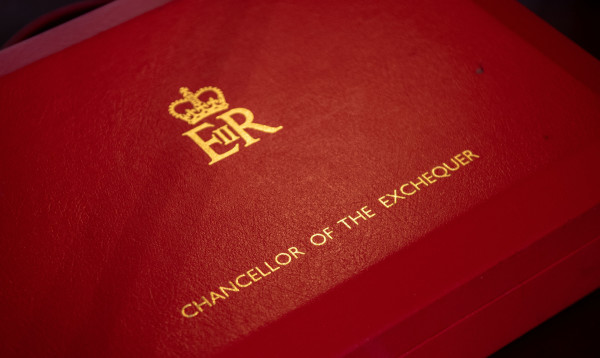

Rishi Sunak's second Budget of 2021 was largely about spending, with little movement on personal tax - notably absent again was any mention of capital gains tax, inheritance tax, or pension tax relief.
There had been expectations of reform to CGT after the Office of Tax Simplification finished its review in May and recommended major changes, such as aligning rates with income tax, removing the CGT uplift on death and reducing allowances.
Capital gains tax generated £10.6bn last year, which is only rising as property and investment prices climb. Raising it could have been a lucrative source of revenue to restore the country's finances after the pandemic.
“The speculation is that the current capital gains tax rates of 10 per cent and 20 per cent (or 18 per cent and 28 per cent for property) will be scrapped and instead everyone will pay income tax rates on their gains," said Laura Suter, head of personal finance at AJ Bell, ahead of today's statement.
But the chancellor refrained from tackling the tax, apart from a move to increase the timeframe in which people who sell property have to pay the tax, from 30 days to 60 days.
This was after industry bodies urged the chancellor to address the issue.
Accounting body the Association of Accounting Technicians wrote to him in September with concerns the "unreasonable" reporting deadline meant more people were facing hefty fines from HM Revenue & Customs, not helped by a general “lack of awareness” of the timeline among those affected.
CGT was already missing from the March Budget, despite mounting predictions of an alignment with income tax.
While both the CGT annual exemption and the IHT thresholds were frozen until 2026, no further action was taken on either at the time.
Inheritance tax and death taxes meanwhile, were tipped as a source of capital from the wealthier segments of society.
Pensions can currently be passed on tax-free on death if the person dies before age 75, and at the recipient’s marginal rate of income tax if they die after age 75.
Over the past few years, reports suggesting reform of IHT rules have been published by the Office of Tax Simplification as well as an All-Party Parliamentary Group.
Areas included the rules on lifetime gifts, the exemptions, and the CGT-free uplift on death and bringing death benefits from pensions into scope of IHT.
Steven Cameron, pensions director at Aegon, said: “While pension death benefits were described by some in advance of the Budget as ‘indefensibly generous’ bringing them into scope of inheritance tax would have been at the extreme end of the spectrum of wealth tax reforms.
"It would have had a multitude of knock-on consequences, potentially impacting millions of people, and in many ways would go against core pension policy objectives of encouraging people to save adequately for retirement, with the freedom to use their accumulated funds flexibly throughout retirement."
The chancellor meanwhile froze a number of tax thresholds at his March Budget, with the nil rate band and residence nil rate band to remain frozen until April 2026.
But there was no mention of the tax in today's statement.
Inheritance tax receipts meanwhile are rising. For the period April to September receipts were up £700m year-on-year, most likely due to higher volumes of wealth transfers during the pandemic, according to HMRC.
Finally, the threat of changes to pensions tax relief, such as a switch to Isa-style pensions or a flat rate for all, or even a cut to high earners' relief, has been on the cards for a while and tends to resurface when Budget day nears.
Currently tax relief on pension contributions is paid at the saver's marginal rate of income tax at the point of saving. Pension income is then taxed at point of withdrawal, opposite to the Isa system.
Previously there have been concerns that the government was looking to cut high earner’s relief to 20 per cent or move to a 25 per cent flat rate.
But so far nothing has materialised, prompting a sigh of relief from some.
Adam Walkom, co-founder of advice firm Permanent Wealth Partners, said: "From most people's perspective, it really was a nothing budget. No major changes to income or CGT rates, pensions nor inheritance tax.
"When the major tax announcements are on the smallest of taxes such as tonnage tax and domestic air passenger duty, this shows how much the Chancellor was scratching around the edges of tax reform."
carmen.reichman@ft.com



